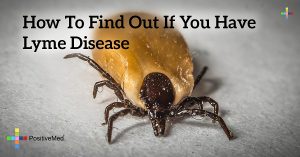Is a Tickle In The Chest Serious?
A tickle in the chest can feel like pressure or fluttering. There are many underlying factors that cause this symptom. Some conditions such as seasonal allergies and colds go away on their own. However, there are other factors that need medical attention. This article explores the causes of a tickle in the chest, the extent of the seriousness of symptoms and how it can be managed.

What causes a tickle in the chest?
There are several conditions that can cause trickling in the chest. Many conditions that do not pose serious health risks can cause a tickle in the chest. It is not a cause for concern.
Hay fever and colds may lead to a tickle in your chest or throat. It is usually a common symptom of the two conditions and after a few days, it goes away. You may require mild treatment or none.In other cases, a tickle in the chest shows more serious health ailments described below. These conditions require extensive medical treatment:
Bronchitis:
This condition occurs when the linings of the airwaves of the lungs get inflamed. As a result, an abnormally large amount of mucus is produced. As mucus build up, your body will try to eject the mucus by coughing leading to a tickle in the chest.
Asthma:
It is long term condition that affects the lungs. This causes the airwaves to get narrow leading to difficulties in breathing. As a result, this is may make the patient have a tickle in the chest.
Irregular heartbeat:
Happens when the heart does not beat with its normal rhythm. It is characterized by a single premature heartbeat leading to a fluttering sensation.
Acid reflux:
Occurs when the acid in the stomach enters your throat. This leads to a burning sensation in the chest.
Pneumonia:
In this condition, the lungs get infected. It is a very serious condition especially in the very young and older. A tickle in the chest is one symptom of pneumonia.
Anxiety:
It refers to a devastating sense of fear and panic. This anxiety causes a trickle in the chest.
Treatment
The best way to treat a trickle in the chest is to diagnose and address the underlying cause. You should see your doctor for a diagnosis and any necessary treatment. Here are some of the strategies that can help you to reduce a tickle in the chest:
Avoid to lying flat on your back
Sleep with extra pillows to support the body slightly.
Drink plenty of fluids.
Avoid smoking.
Ensure that the surroundings are clean and from irritants such as dust.
Gargle with salt water.
Take boiled water with honey and a slice of lemon.
Conclusion
In cases of a mild tickle in the chest caused by cold and hay fever,If the tickle in your chest lasts more than a week, seek medical attention. If the condition persists, it may indicate that a person has a serious illness such as pneumonia, bronchitis, and asthma. If you realize an irregular heartbeat, see your doctor immediately since this is a dangerous condition.
Edited by: Jessa (Feb. 24, 2019)








